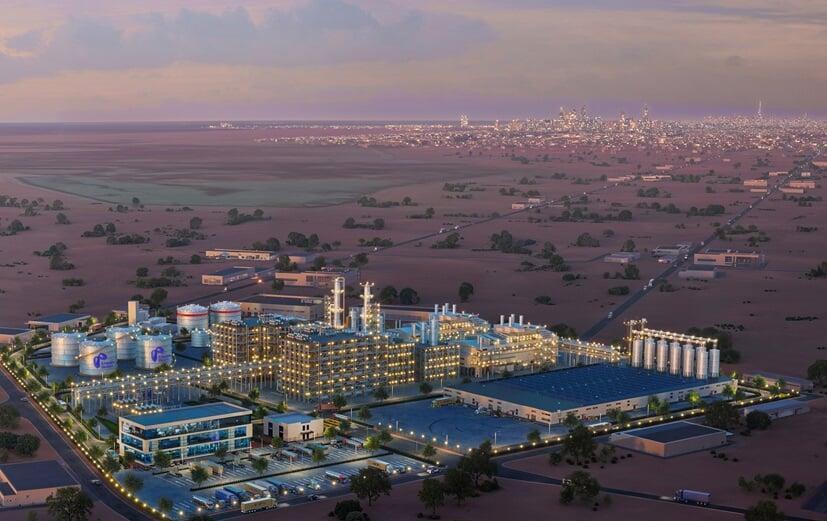Dec. 10 (Bloomberg) -- Emirates Biotech has selected Sulzer of Switzerland as the technology provider for its upcoming polylactic acid (PLA) production plant in the UAE.
The plant, with a total investment of about $800 million (RMB 5.8 billion), will be built in two phases, each with a capacity of 80,000 tons per year, for a total capacity of 160,000 tons per year. Once completed, it will be one of the largest PLA production facilities in the world. The bioplastic material, which supports regional and global efforts to combat plastic pollution and climate change, is enough to replace about 3.2 billion plastic bottles and will reduce carbon dioxide emissions by more than 300,000 tons per year.

Emirates Biotech's world-class PLA production facility in the UAE
PLA offers a sustainable alternative to traditional plastics. It is used in a wide range of applications such as packaging and disposable utensils, helping to reduce global dependence on single-use plastics. UAE Biotech will utilize Sulzer's patented PLA technology to manage all production steps, including propylene glycol ester production, purification and polymerization, from a single location. The plant will also produce high-quality PLA bioplastics on a large scale using plant-based feedstocks, making the Middle East a key player in the bioplastics industry.
Sustainable alternatives to traditional plastics
With more than two centuries of industry experience and a proven track record in bioplastics, Sulzer's patented PLA technology is already in use in most PLA plants worldwide. This new development reinforces Sulzer's commitment to support global industry in adopting circular manufacturing and building more prosperous and sustainable societies.
Located in the United Arab Emirates, construction of the plant will begin in 2025 and is expected to be operational by early 2028. The plant will use lactic acid (LA) as its feedstock for PLA production, providing a low-carbon footprint and biodegradable alternative to traditional plastics, further contributing to the circular economy.
Shaikh Suhail Ali Saeed Rashed Al-Maktoum, a major shareholder in UAE Biotech, commented, “This project highlights our commitment to sustainable development and economic diversification. By utilizing innovative technologies and strategic partnerships, we aim to establish the UAE as a global leader in the production of environmentally friendly materials.”
Promoting the global adoption of biopolymers
Marc Verbruggen, Chief Executive Officer of UMC Biotech, said, “Our partnership with Sulzer marks an important milestone in our journey to establish a world-class PLA production facility. Sulzer's expertise and innovative solutions are critical to realizing our vision of leading the biopolymer industry while contributing to a more sustainable future.” Marc Verbruggen is the former CEO of NatureWorks (between 2008 and 2017).
“We are proud to partner with Sulzer on this groundbreaking project.” Dorus Everwijn, president of GBI, a major shareholder in Emirates Biotech, added, “Sulzer's advanced technology and extensive experience in the PLA industry will support the development of a best-in-class PLA production facility that will set new benchmarks.” Emirates Biotech was formerly known as Gulf Biopolyers Industries.
Tim Schulten, division president of Chemtech, said, “We are excited to be working with UAE Biotech on this groundbreaking project. By bringing our advanced PLA production technology to the UAE, we are supporting the region's transition to more sustainable materials and contributing to a greener future.”
Emmanuel Rapendy, Global Head of Polymers and Crystallization at Sulzer Chem-Tech, continued: “This project is extremely important because environmental challenges highlight the need for global adoption of biopolymers. In addition, it emphasizes our ethos of tackling sustainability from the ground up. Not only do we utilize our technology to achieve cleaner processes and end products, but we also ensure that our equipment and systems are very efficient, thereby limiting the energy input required for operations.”
As global demand for PLA continues to rise due to environmental concerns and the shift to sustainable materials, the plant will position the Middle East as a key player in the bioplastics industry, supporting regional and global efforts to combat plastic pollution.

